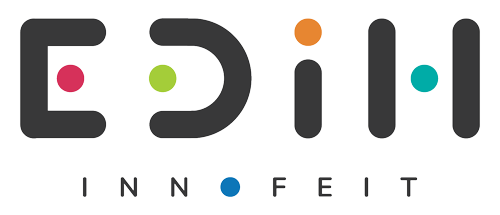Unlock the potential of machine learning! Learn to develop, evaluate, and optimize ML models with Python. Gain hands-on experience to tackle real-world challenges and make data-driven decisions.
Course Overview Table
| Chapter | Details |
| Partner | Faculty of Electrical Engineering and Information Technologies |
| Title | Machine Learning: From Fundamentals to Application |
| Service | Course |
| Target Group | Engineers and IT professionals from SMEs, industry, and public organizations, as well as other individuals who are looking to develop machine learning skills |
| Format | In-Person Training |
| Focused on Key Technologies | Artificial Intelligence, Machine Learning |
| Status | Ready to offer |
| Stakeholders from SME/PA Side | Organizations seeking to leverage machine learning to optimize processes, enhance decision-making, and drive innovation through the development and deployment of ML models. |
| Requirements for Participation | Knowledge of data preprocessing and preparation for machine learning, basic knowledge of Python programming. |
| Estimated Duration | 4 days, 4 hours per day (16 hours in total) |
Description of the Course
In today’s data-driven era, machine learning (ML) unlocks a wealth of opportunities to transform businesses. By converting raw, complex data into actionable insights, this technology empowers organizations to make informed decisions, optimize strategies, and enhance processes. This course is designed to equip participants with the key skills necessary to fully leverage the potential of machine learning.
With a balanced approach that integrates both theoretical knowledge and practical experience, the course offers a comprehensive understanding of machine learning and its application to real-world scenarios. Participants will gain hands-on experience with Python and leading machine learning libraries such as Scikit-learn to implement and evaluate models. Throughout the course, participants will address real challenges from various industries, including time series forecasting, anomaly detection in predictive maintenance systems, customer segmentation for strategic decision-making, and process optimization.
The course is structured over four days, with each day dedicated to a distinct aspect of machine learning:
- Introduction to Machine Learning. Supervised Learning: Classification and Regression
This session introduces the core concepts of machine learning and distinguishes between supervised and unsupervised learning. Emphasis will be placed on supervised learning algorithms, with participants exploring and implementing linear, polynomial, and logistic regression, along with their practical applications.
- Supervised Learning: Classification and Regression
Participants will focus on the implementation of supervised learning algorithms such as KNN, SVM, Decision Trees, and Random Forest, applying these techniques to real-world scenarios.
- Data Splitting. Model Evaluation and Validation. Hyperparameter Tuning
This session covers best practices in splitting datasets into training, testing, and validation sets. Participants will learn to evaluate and validate classification models using metrics like accuracy, confusion matrix, recall, precision, F1-score, and for regression models: MAE, MSE, RMSE, R-score, and correlation. Additionally, the session will address hyperparameter tuning techniques.
- Unsupervised Learning: Clustering
In this session, participants will explore unsupervised learning techniques, such as K-means and Hierarchical Clustering, and apply them to real-world datasets. The course will conclude with participants tackling a hands-on challenge by applying one of the algorithms studied.
Upon completion of the course, participants will be equipped with the skills to develop, evaluate, and refine machine learning models tailored to solving real-world problems and driving insightful decisions.
Additional Course Information
| Category | Details |
| Developed skills | Participants will acquire knowledge and skills, including: |
| Skill 1: Understanding key ML algorithms and techniques
Skill 2: Implementing machine learning models Skill 3: Evaluating model performance using various metrics Skill 4: Applying hyperparameter tuning to optimize model results Skill 5: Solving real-world challenges using ML |
|
| Learning Methods Used | Lectures, hands-on exercises, group discussions |
| References/Resources | Andreas Muller and Sarah Guido – Introduction of Machine Learning with Python (2016) |
| Overview Slides | Supporting materials will be provided; available via the course platform or upon request |
